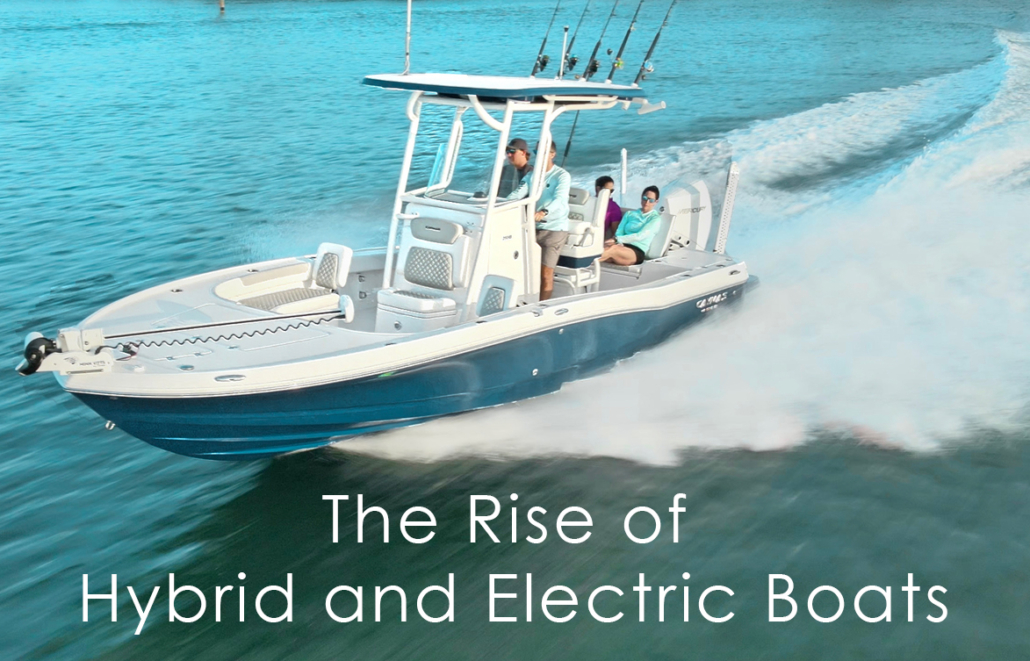Part of the Boat Trends of 2024 Series
In recent years, the maritime industry has been undergoing a significant transformation driven by a growing awareness of environmental concerns and the need for sustainable practices. One notable aspect of this shift is the increasing popularity of hybrid and electric boats. As technologies advance and regulations tighten, boat manufacturers and enthusiasts alike are embracing these cleaner alternatives to traditional fossil fuel-powered vessels.
The Evolution of Hybrid Boats
Hybrid boats combine the advantages of conventional combustion engines with electric propulsion systems, offering improved fuel efficiency, reduced emissions, and quieter operation. These vessels typically feature a dual power source: an internal combustion engine supplemented by an electric motor or battery pack.
One of the main advantages of hybrid propulsion is its flexibility. While the internal combustion engine provides the necessary power for long-range cruising or high-speed operation, the electric motor can be used for quiet maneuvering in marinas or environmentally sensitive areas. Additionally, regenerative braking systems can recharge the batteries while the boat is underway, further enhancing efficiency.
Electric Boats: Navigating Towards Sustainability
Electric boats represent the pinnacle of eco-friendly maritime technology, relying solely on electric motors powered by rechargeable batteries or fuel cells. These vessels produce zero emissions during operation, making them ideal for environmentally sensitive waterways and marine ecosystems.
Advancements in battery technology have been instrumental in the proliferation of electric boats. Lithium-ion batteries, commonly used in electric vehicles, offer high energy density and fast charging capabilities, enabling extended range and shorter refueling times for electric boats. Moreover, the decreasing cost of batteries has made electric propulsion systems more accessible to boat manufacturers and consumers alike.
Electric boats come in various forms, ranging from leisure craft and ferries to commercial vessels and research ships, showcasing the versatility and potential applications of electric propulsion in the marine industry.
Benefits
The transition to electric propulsion presents numerous benefits, including eliminating harmful emissions, reducing noise pollution, and lowering operating costs over the long term. Electric boats offer silent and emissions-free operation, making them ideal for use in sensitive ecosystems, urban waterways, and recreational areas where noise and pollution are significant concerns. Moreover, the advancements in battery technology are driving improvements in energy density, charging infrastructure, and range, addressing some of the key challenges associated with electric propulsion.
Challenges
Despite their many advantages, hybrid and electric boats still face several challenges that must be addressed for widespread adoption. One of the primary concerns is the limited range and charging infrastructure for electric vessels, which can impact their suitability for long-distance journeys and offshore operations. However, ongoing research and development efforts are focused on enhancing battery technology, increasing energy efficiency, and expanding charging infrastructure to overcome these limitations.
Additionally, the upfront cost of hybrid and electric propulsion systems may pose a barrier to widespread adoption, especially for smaller operators and recreational boaters. However, the long-term savings associated with reduced fuel consumption, maintenance, and environmental impact can offset the initial investment and provide a compelling business case for transitioning to cleaner technologies.
In conclusion, the rise of hybrid and electric boats signifies a paradigm shift in the maritime sector towards sustainability and innovation. Hybrid and electric boats are at the forefront of this transition, offering efficient, eco-friendly alternatives to conventional propulsion systems. By harnessing the power of hybrid and electric technologies, the marine sector can navigate towards a more sustainable future, preserving our oceans and waterways for generations to come.



